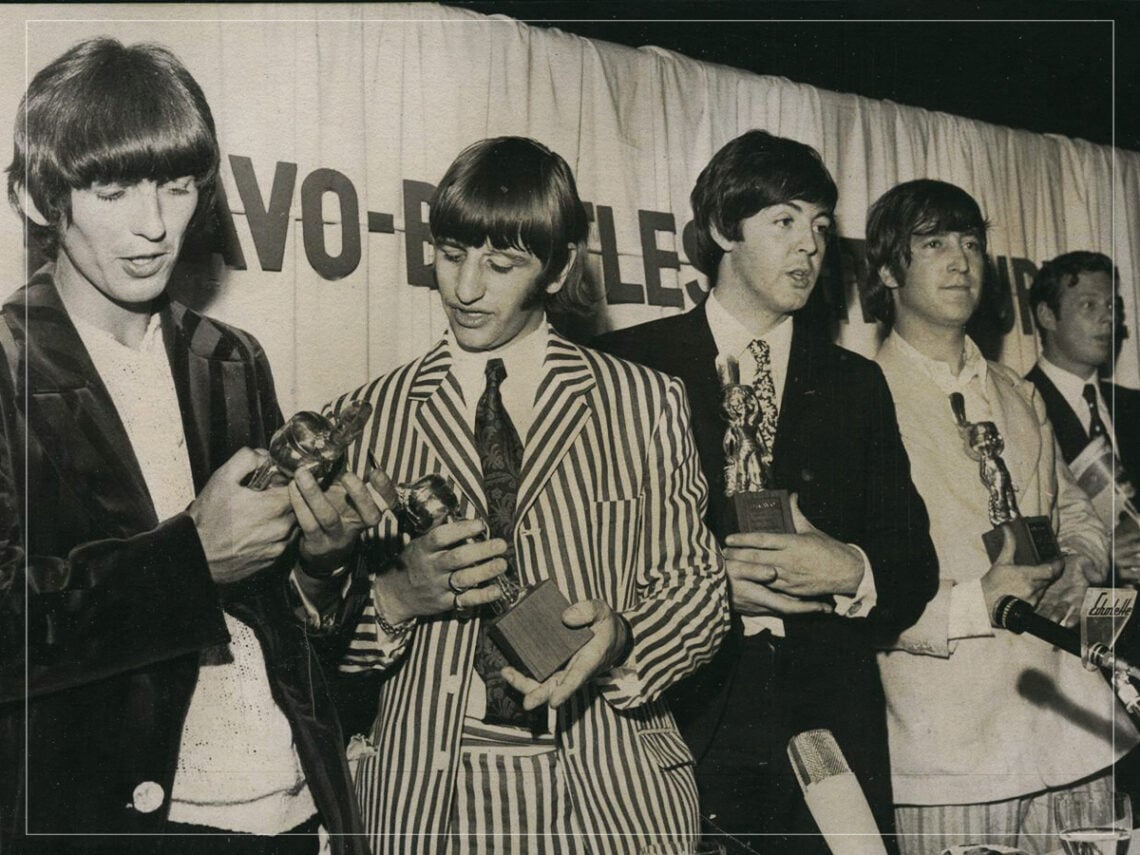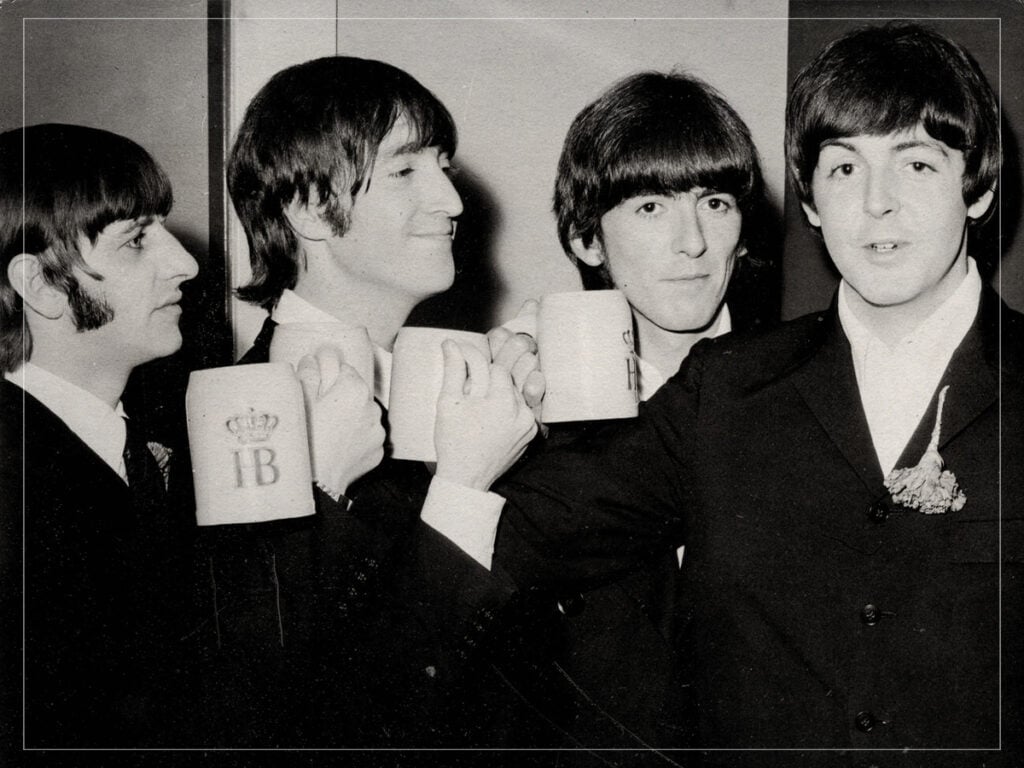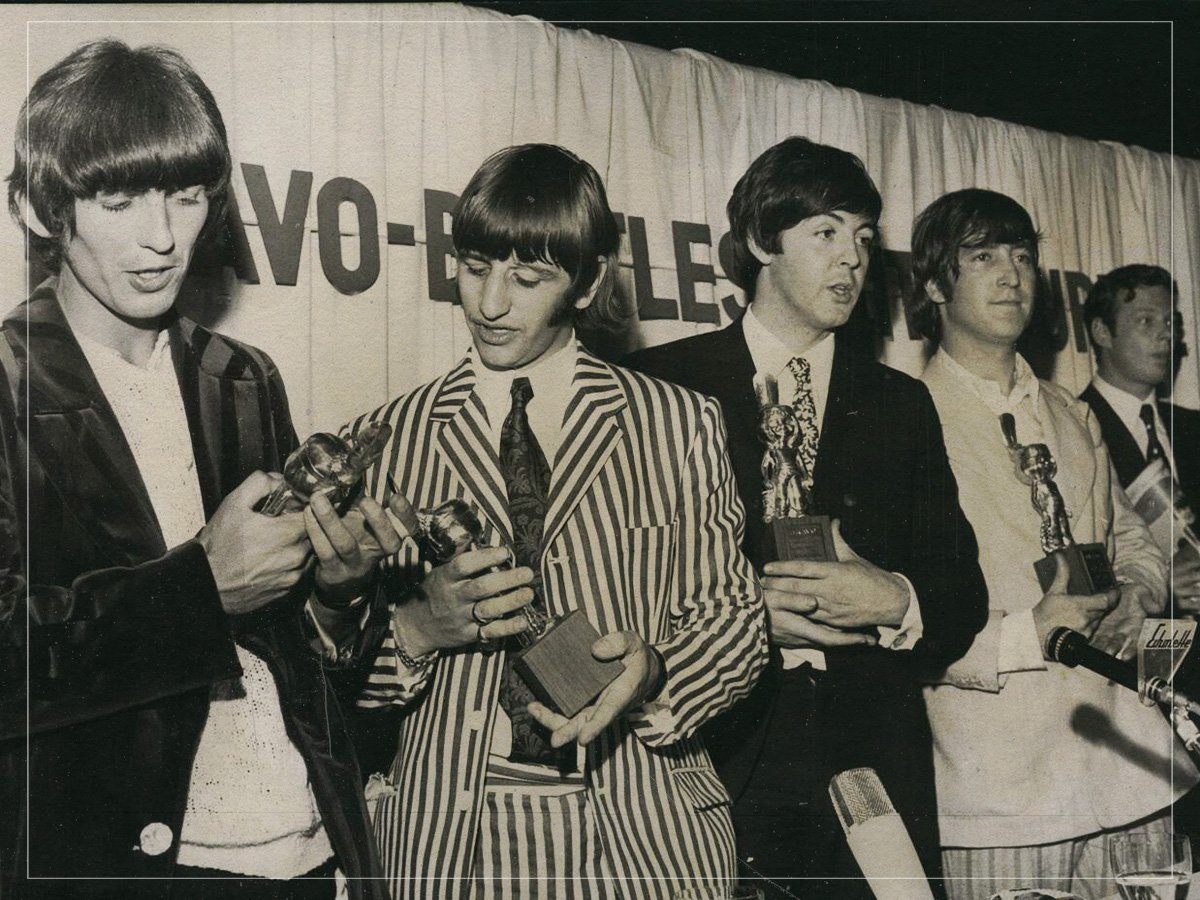
(Credits: Far Out / Alamy)
Tue 16 September 2025 15:00, UK
In one summer week, in 1996, the English world was about to change forever.
A set of floppy-haired youngsters, in their mid-20s, were about to deliver what the entire country was waiting for. Two moments of pure precision, skill and most important, success. Yes, within just one week, England won their first and only World Cup, and The Beatles released fucking Revolver.
Maybe you think I’m stretching with my world-changing comment, for by 1966, The Beatles had already altered history and wouldn’t be credited with doing the same until Sgt Pepper’s Lonely Hearts Club Band a year later. Maybe it’s even more of a stretch putting it in the sentence as England’s World Cup win. But it’s truly my favourite Beatles album, and I am trying to imagine what my current life might feel like, were these two events to happen to me, in the same week.
Why do I hold the record in such high regard? Well, not only is it the record that truly represents the band’s full transition into the experimental, with the monkey of touring off their back and the creative reins firmly in their grasp, but to me, it’s their most succinct collection of good songs. ‘Here There And Everywhere’ is as vintage McCartney as it gets, while ‘Tomorrow Never Knows’ is John Lennon at his groundbreaking and esoteric best.
I guess that goes to show, it was a perfect combination of innovation and hits. And one of which was undoubtedly Eleanor Rigby. Considered strings foreshadowed the grand soundscapes of what was to come, while maintaining that innocent and inquisitive sense of melody, the sense that laced the entirety of their early work.
 Ringo Starr, John Lennon, George Harrison and Paul McCartney in 1966. (Credits: Far Out / Alamy)
Ringo Starr, John Lennon, George Harrison and Paul McCartney in 1966. (Credits: Far Out / Alamy)
In many ways, it acted as the perfect soundtrack to the creative bridge they were crossing, oozing sonic experimentation while holding onto that lyrical youthfulness. Because after all, it was inspired by a simple childhood memory from the mines of McCartney’s mind.
He harked back to his days as a Boy Scout, where he volunteered to help a group of elderly ladies that made a lasting impact on him. “I wanted to write a song that would sum them up,” he explained during a conversation with The New Yorker. “‘Eleanor Rigby’ is based on an old lady whom I got on with very well. I don’t even know how I first met ‘Eleanor Rigby’, but I would go around to her house, not just once or twice.”
“My memory has me visiting Bristol, where Jane Asher was playing at the Old Vic,” he recalled. “I was wandering around, waiting for the play to finish, and saw a shop sign that read ‘Rigby’, and I thought, That’s it! It really was as happenstance as that.”
But what song outsold ‘Eleanor Rigby’ in 1966?
Well, despite the fact that it had absolutely everything going for it on that front, it was outsold by a more obscure song. Never mind its catchy melody and easy-to-sing-along lyrics, also in the age of pure Beatlemania, it didn’t have the gusto to top this one track.
The New Vaudeville Band released their song ‘Winchester Cathedral’, an ode to the music hall genre, but with an extra sense of novelty from its horn section in antique costumes and the lead vocalist using a megaphone.
Sure, it was novelty and fun, but not exactly an outright earworm, which was what made it so shocking in that it outsold ‘Eleanor Rigby’. But then it compounded, as they beat the Fab Four to the Grammy for ‘Best Contemporary (Rock & Roll) Recording’ in 1967.
Related Topics
The Far Out Beatles Newsletter
All the latest stories about The Beatles from the independent voice of culture.
Straight to your inbox.

